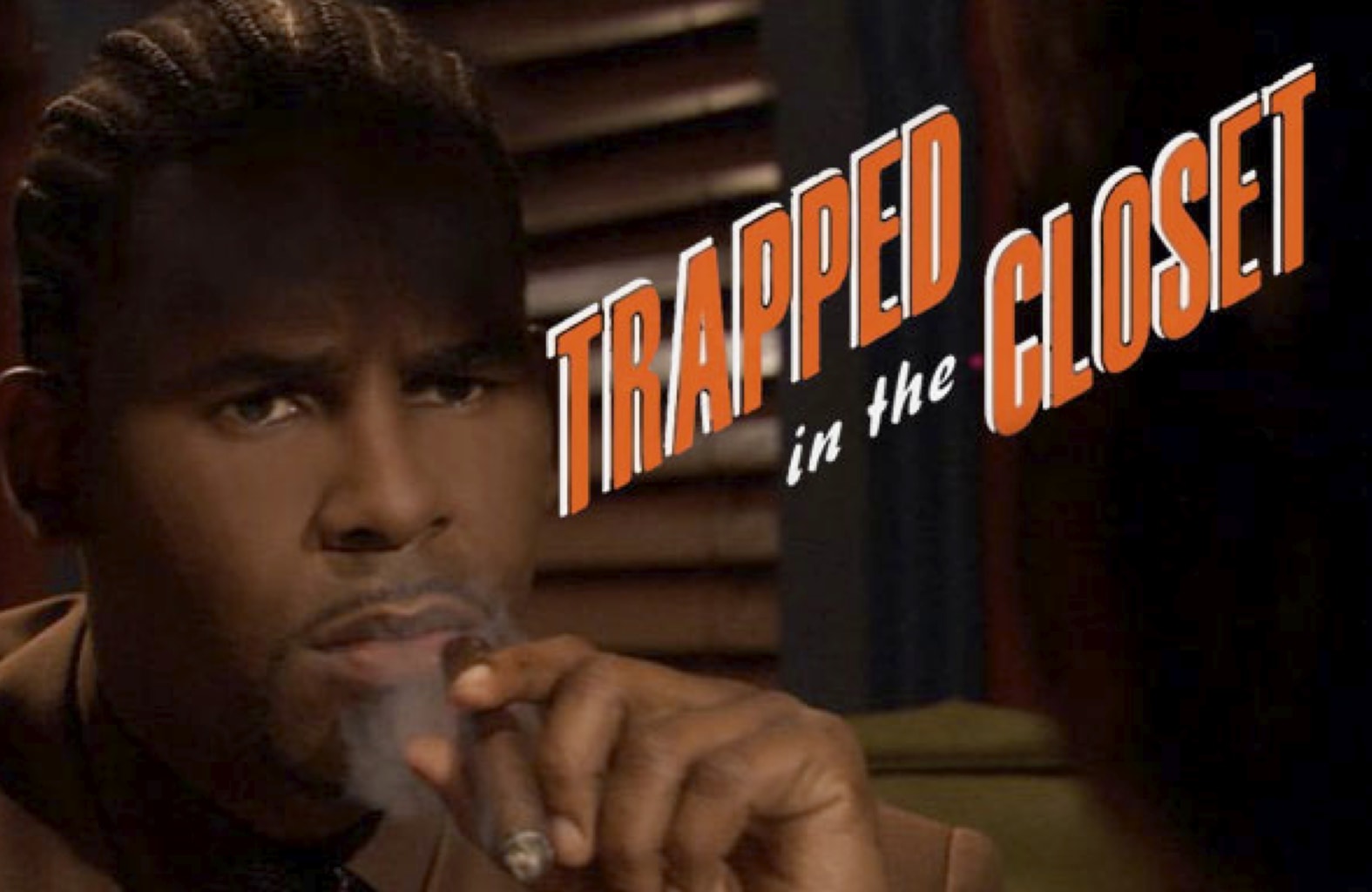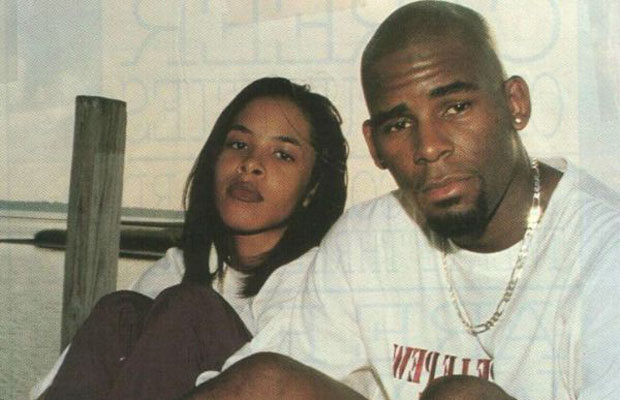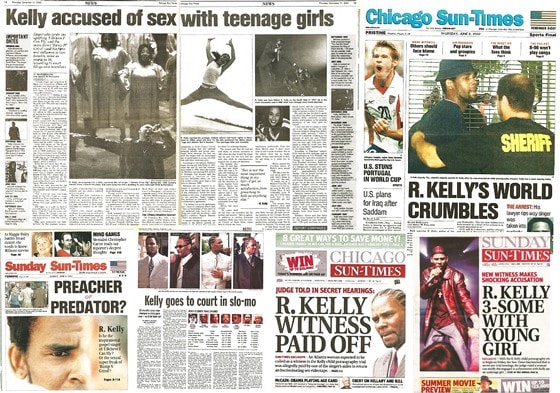
Every once in a while, my roommate likes to crank the volume when R. Kelly’s “Ignition (Remix)” comes up on her playlist. It’s one of her favorite songs and she’ll tell us so, whenever and wherever it comes on. She’ll scream, and we’ll throw our hands up, start dancing, and get to work on those catchy lyrics.
My roommate isn’t the only one who loves this track: It’s anthem of sorts for our generation, played at almost every “night before Thanksgiving” hometown bar high school reunion, as noted by The NYT. Which makes now a good time to talk about it and its creator.
R. Kelly is lauded as a musical genius, and what he’s come up with has his fans hooked. Born and raised on Chicago’s South Side, he went from singing backyard barbecues and subway busking to producing “wholesome, inspirational songs about salvation and God, and filthy ones about freaky sex that often employ imaginatively silly metaphors,” as David Marchese wrote in a recent New York Magazine profile on the artist. Not to mention the infamous, bizarre (and ongoing) “Trapped in the Closet” hip hopera saga.
And if you read through the various profiles on him, you can tell that journalists enjoy covering him in spite of themselves. His chaste and cheeky persona, his musical prowess, and the “trust me, I know where I’m going with this” visionary power of his projects often fill entire sections where the writers get to indulge in how comically weird R. Kelly is.
These days, I don’t say anything when his music comes up. It’s for the same reasons I feel weird about enjoying anything by Roman Polanski, Woody Allen, or Terry Richardson. The truth of those accusations aside, the fact that accusing a beloved celebrity of rape is considered more damaging and heinous than being a rapist is something that makes me nauseous. And I always wonder if those celebrities, R. Kelly included, are comfortable with the fact that willful ignorance and rape culture help continue their commercial and artistic success.
It’s not a secret that we stream certain artists on Spotify and give them our money knowing full well they’re terrible people who’ve harmed others, making allowances for some and not for others. And it’s not just singers; we do this with filmmakers and writers who resonate with us for whatever reason. It’s complicated to hold those two ideas in our minds — that the most evocative, innovative artists may also be disgusting people — so we often negotiate that thorny territory by compartmentalizing.
Everyone who listens to R. Kelly, and everyone who loves Woody Allen and Roman Polanski (I’m a fan of The Fearless Vampire Killers), knows what they know and makes the choice to enjoy and pass on their art to their friends. I think most people take it on a case-by-case basis and negotiate each choice differently. Art is a terrain where it’s often OK to minimize other people, and where you quickly realize who you consider less valuable, as ugly and loathsome as the answer might be.
I’m struck by the reasoning behind these choices. People like my roommate stay with R. Kelly and other controversial artists in part because of how strongly they identify with some aspect of the artist’s music, but not as strongly with the girls who filed those suits. In a culture that still treats rape as edgy comedic territory, it takes some work to access that empathy. (Unless you’re really cynical, you’ll never find R. Kelly pee jokes funny after reading what’s in those tapes.) That being said, how people don’t think to question these artists still surprises me.
It’s worth pointing out that when someone like R. Kelly is accused of sexual abuse, a number of threads make that territory even messier. While researching this piece, I came across commenters who were angry that another successful black man was being torn down with what they saw as slander, which was the same kind of reaction I saw when Bill Cosby’s reputation finally started to unravel. (There was pushback in both cases.) Then there was the fact that all the known victims were young black girls. Jim DeRogatis, the Chicago Sun Times reporter who broke the story, told The Village Voice,
“The saddest fact I’ve learned is: Nobody matters less to our society than young black women. Nobody.”
And there’s the trope that people who accuse celebrities of rape want fame, money, or the satisfaction of vilifying a famous figure. Those stereotypes are amplified when it comes to black women. Some of the girls and their families did decide to capitalize on the suits (one family going on vacation to France), but as DeRogatis points out in the Q&A:
“That doesn’t mean that it’s legal or that girl wasn’t harmed. It tore that family apart.”
Most of R. Kelly’s accusers settled their lawsuits, which can be the best legal option when you’re sure you have no chance of winning and want to avoid a painful litigation process.
R. Kelly is far from being the only predator in the entertainment industry. I’m not here for criticism of rape culture that singles out rap and hip-hop for examples of abuse, since that same exploitative behavior abounds in other genres (Led Zeppelin, for one). But R. Kelly’s the one making money celebrating his “kinks,” and he’s the one who wrote Aaliyah’s single “Age Ain’t Nothing but a Number” for her debut album (he later illegally married her when she was 15). The number of lawsuits and accusations against him also make him a singular case, as well as how much of that was quickly forgotten.

After years of wishy-washy coverage, the tipping point came when DeRogatis sat down for a Q&A with The Village Voice in 2013 to recap the aftermath that the public either never saw or cared about: One girl with scars on her wrist after her suicide attempt, another who was pressured into having an abortion, how R. Kelly would return to his old high school to find new victims. And the infamous urination video that led to the “pee on you like R.Kelly” punchline that all of this was boiled down to.
Here’s the thing about that punchline: Comedy can be a way of dealing with the horror show of reality. It can chip away at people who hurt others with less power by taking shots at them when nothing else has worked, and it lets comedians say things about otherwise-untouchable public figures. But in this case, it defanged the grossness of pedophilia and made what was depicted in that video seem harmless and comical. Possible evidence that R.Kelly was a sexual predator who manipulated young black girls turned into “R.Kelly likes to pee on people,” and that same toothless treatment of the case was repeated all over the media. Lives were ruined, but few people were interested in finding out who was responsible.

After that interview went viral, there was a sea change (sort of) in how people wrote about R. Kelly. Pitchfork still let him headline their festival, and rave reviews of his album Black Panties glossed over the fact that he’s an accused serial rapist. But later profiles struck an ambivalent tone, the most recent example being the NYMag profile called “Is It Okay to Listen to R. Kelly?” One commenter asked if that profile wasn’t maybe a decade late.
Maybe not. When we talk about what to do with R. Kelly, I think we’re really talking about every other piece of media that throws those kinds of uncomfortable questions in our face. The nature of the entertainment industry tends to shelter predators and turn our favorite movies, shows, and songs into ethical dilemmas while giving us cultural pieces that we not only treasure, but use to make sense of our own experiences and shape our identities.
So the choices we make are fraught with those little compromises, and I don’t really know how to make it less so. What do you guys think?

This may be the most interesting article I have read in years in this site!
I always feel devasted when something dark, from someone I enjoy his/her work, goes to the surface. That happen when I knew that Klaus Kinsky raped his daugther.
We are full of problematic idols, people acuse of violent behavior, drug abuse, rape, racims, etc. Just take in note that people in and out of the fashion industry still worships Kate Moss.
But then again art and celebrities feed certain needs in our daily life. Till witch point do we allow all this, or are permisive with some celebs and not with others? At some point we are also to blame.
Great write-up! Thought-provoking on something I knew very little about. I hope to see more content like this on CF.
Really well written and thought provoking article!
I think it’s awesome that you and CF decided to post an article like this, because it is really hard negotiating the discourse of really liking certain artists for their work and acknowledging that talent does not make someone a good person. And I think this article is a good example of how we start these conversations: just to acknowledge that some of our favorite singers/writers/actors are problematic people opens up a platform to discuss these issues.